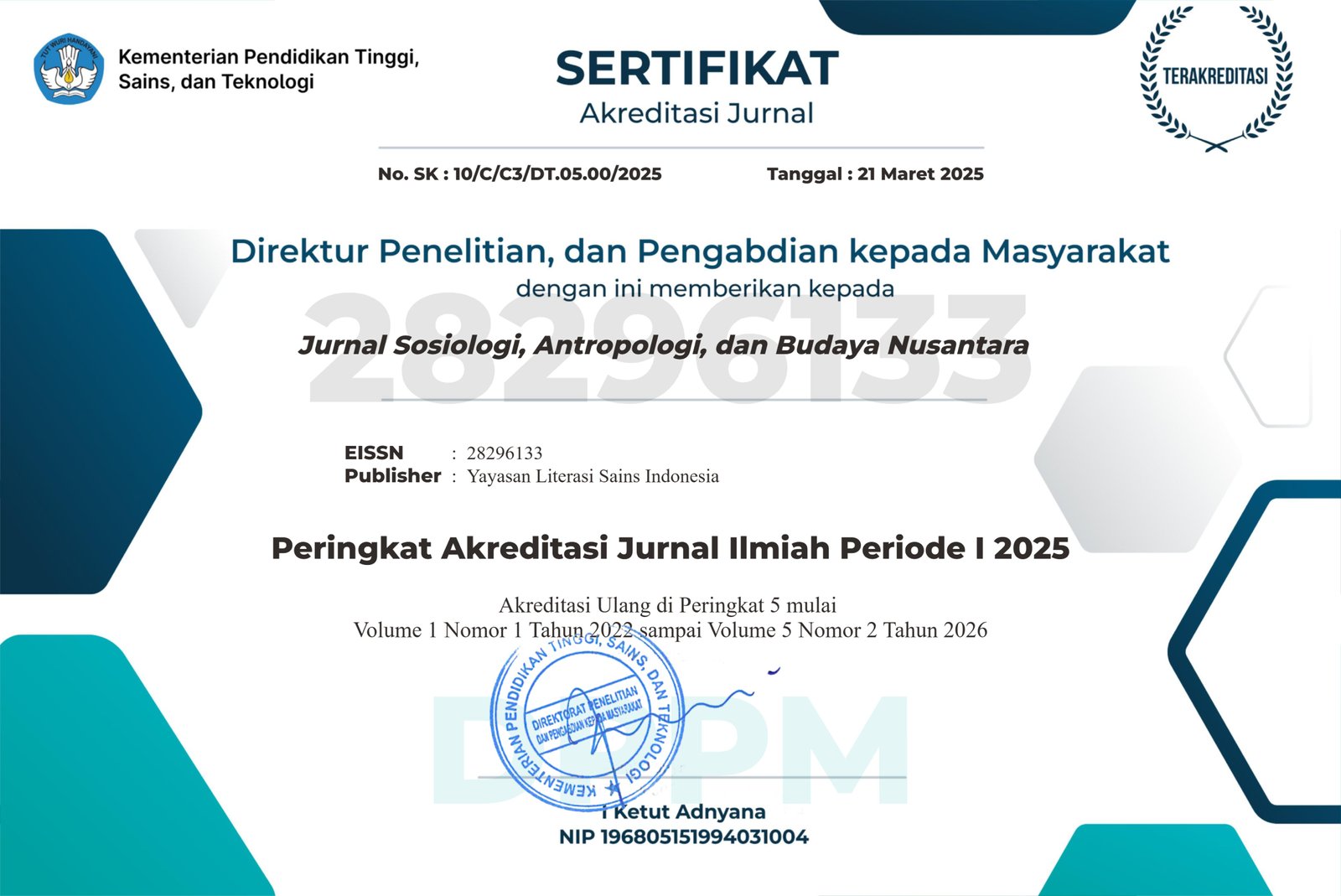IMPLEMENTASI SISTER CITY PEMERINTAH KOTA MEDAN -ICHIKAWA JEPANG DALAM MEWUJUDKAN PENDIDIKAN BERMUTU TAHUN 2018-2019
DOI:
https://doi.org/10.55123/sabana.v1i3.1075Keywords:
Sister City Medan, Ichikawa, Liberalism, Student ExchangeAbstract
Cooperation is an important thing in the era of globalization. Actors in carrying out cooperation no longer only include the state, but the local government is also able to carry out cooperation. Sister City is a long-term collaboration between two city governments in two countries. Medan City is one of the metropolitan cities in Indonesia which has several sister city activities, one of which is with the Ichikawa Government. The sister city collaboration between the Medan City Government and Ichikawa City Government has been established since the signing of the Memorandum of Understanding between the two cities on November 4, 1989. This study aims to see the implementation of cooperation between Medan-Ichikawa in realizing quality education using the Sister City approach and the theory of Institutional Liberalism. The research was conducted using qualitative methods, with data collection techniques in the form of interviews and library research.
Downloads
References
Sister Cities International. “ What is a Sister City? “. Diakses dari https://sistercities.org/about-us/what-is a-sister-city-3/ pada 6 Januri 2022 pukul 15.15 WIB
Rodrigues Z. (2021). A study based on the UNESCO report on the four pillars of knowledge. Diakses dari https://www.nucleodoconhecimento.com.br/education/four-pillars pada 5 September 2022 pukul 18.53 WIB
Wang, A. L. Collaborative Learning in Cultural Exchange : Exploring Its Current Trend and Feature. Lecture Notes in Computer Science, 1.
Neuman, W. Lawrence. (2004). Basics of Social Research Qualitative and Quantitave Approaches. United States of America: Pearson Education.
Ichikawa. Ichikawa City statistics. Diakses dari https://www.city.ichikawa.lg.jp/gen01/1111000001.html pada 31 Agustus 2022 pukul 11.52 WIB
Elasmay Mahrouse, M. (2021). Japan's Education System, And its financing. Sohag University International Journal of Educational Research, 4(4), 1-6.
Hasil Wawancara dengan Staff Ichikawa City Hall melalui email.
Dapo Kemdikbud. Data Sekolah Kota Medan. Diakses dari https://dapo.kemdikbud.go.id/sp/1/070000 pada 2 September 2022 pukul 01.09 WIB
Hasil Wawancara dengan Staff Bagian Kerjasama Sub Koordinator Luar Negeri, Ibu Kharina, di Kantor Walikota Medan
Jackson, R. H., & Sørensen, G. (2007). Introduction to International Relations: Theories and Approaches. Oxford University Press.
SDGS. Sustainable Development Goal 4 (SDG 4) is the education goal. Diakses dari https://www.sdg4education2030.org/the-goal pada 22 September 2022 pukul 14.48 WIB
Ahmadi, KN, Herlina. 2017. Analisis Segmentasi Terhadap Keputusan Pembelian Produk Eiger Di Bandar Lampung. Jurnal Manajemen Magister 3 (1), 75-95.
Issues and Cases. London: International Thomson Business Press.
Downloads
Published
How to Cite
Issue
Section
License
Copyright (c) 2023 Fezrin Inggrit Debora Nainggolan, Roberto Octavianus Cornelis, Sri Suwartiningsih

This work is licensed under a Creative Commons Attribution 4.0 International License.


























